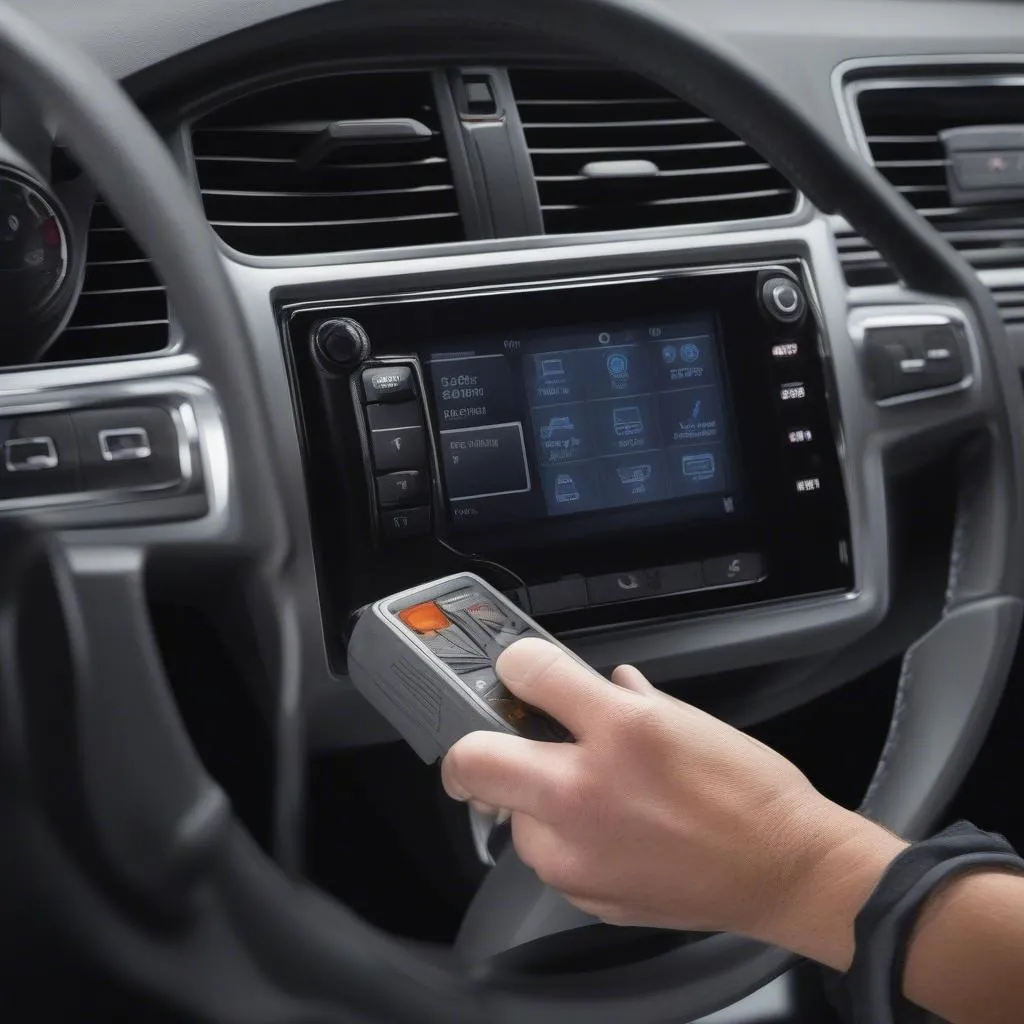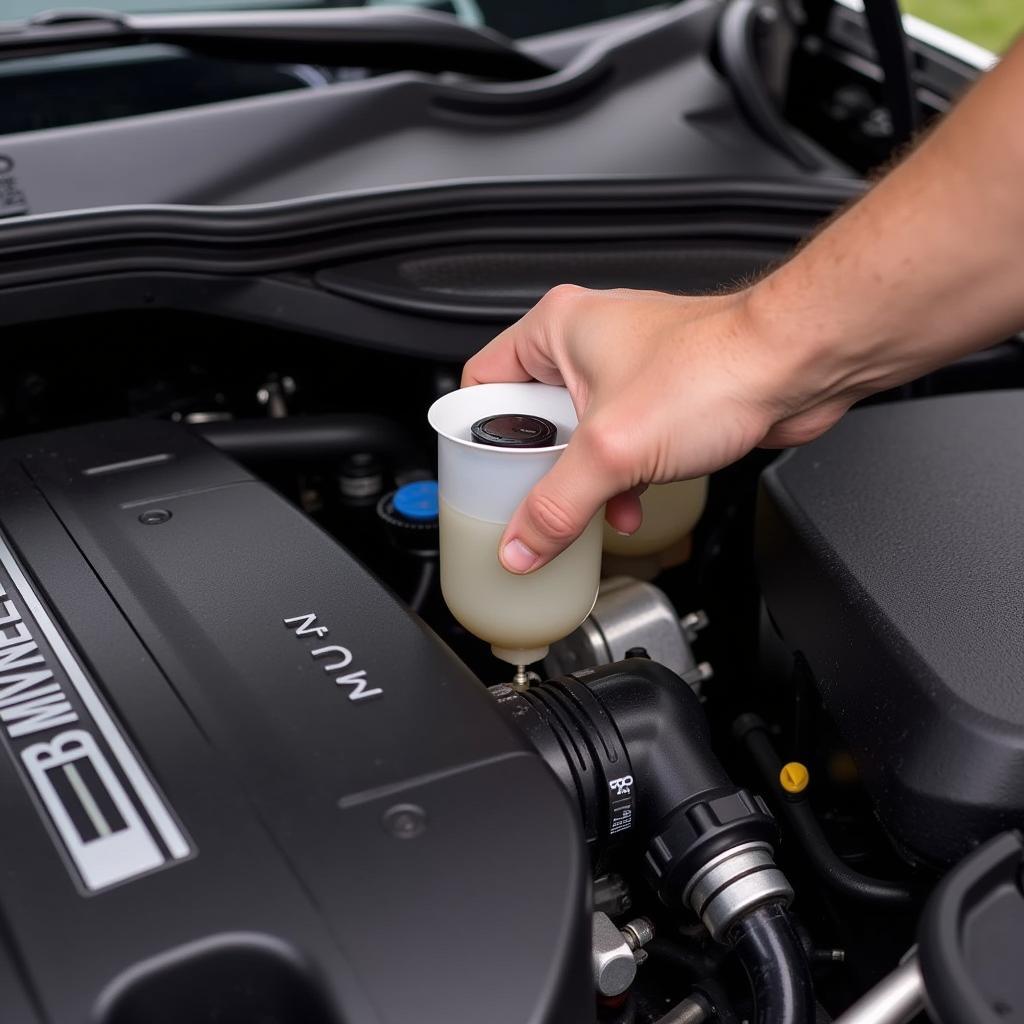A glowing brake warning light on your Georgie Boy motorhome’s dashboard is a clear sign that something is amiss with your braking system. While it can be alarming to see, it’s important to address this issue promptly to ensure your safety and that of others on the road. This comprehensive guide will walk you through the common causes of a Georgie Boy motorhome brake warning light and provide troubleshooting steps to help you diagnose and potentially resolve the issue.
Understanding Your Georgie Boy Motorhome’s Brake System
Before delving into the troubleshooting process, it’s helpful to understand the basic components of your motorhome’s brake system. Georgie Boy motorhomes, like most RVs, utilize air brakes, a robust system designed for larger vehicles. The system consists of:
- Air Compressor: Generates pressurized air to power the brakes.
- Air Tanks: Store the compressed air.
- Brake Valves: Control the flow of air pressure to the brakes.
- Brake Chambers: Convert air pressure into mechanical force to engage the brakes.
- Brake Shoes/Pads: Friction materials that press against the brake drums/rotors to slow down or stop the vehicle.
Common Causes of a Brake Warning Light
The brake warning light is designed to illuminate when there’s a problem within this system. Several factors can trigger this warning, including:
- Low Air Pressure: A leak in the air lines, a malfunctioning air compressor, or a problem with the air dryer can lead to insufficient air pressure in the system.
- Worn Brake Components: Over time, brake shoes, pads, drums, and rotors wear down, reducing their effectiveness. This can activate the warning light, especially if the wear reaches a critical point.
- Brake Fluid Leak: While less common in air brake systems, Georgie Boy motorhomes still use hydraulic fluid for components like the parking brake. A leak in this system can also trigger the warning light.
- Faulty Sensors: The brake system relies on sensors to monitor various aspects, including air pressure and brake fluid level. A malfunctioning sensor can send a false signal, illuminating the warning light.
- Electrical Issues: Wiring problems, a blown fuse, or a faulty brake light switch can also lead to a false warning light activation.
Troubleshooting the Brake Warning Light
1. Check Air Pressure Gauge:
The first and most crucial step is to check the air pressure gauge on your dashboard. It should ideally read between 100-120 PSI. If the pressure is significantly below this range, you likely have an air leak or a problem with the air compressor.
2. Inspect for Air Leaks:
Carefully listen for any hissing sounds around the air compressor, air lines, and brake chambers. A physical inspection for leaks can be done by spraying soapy water on these components and watching for bubbles. However, due to the complexity of the air brake system, it’s recommended to have a qualified technician address any suspected leaks.
3. Examine Brake Components:
Visually inspect the brake shoes, pads, drums, and rotors for excessive wear. If you notice deep grooves, cracks, or significant thinning, replacement is necessary.
4. Check Brake Fluid Level:
Locate the brake fluid reservoir for the parking brake (refer to your owner’s manual for its location) and check the fluid level. If it’s low, there might be a leak, requiring immediate attention from a mechanic.
5. Inspect Wiring and Connections:
While less common, loose or corroded wiring connections can cause electrical issues that trigger the brake warning light. Carefully examine the wiring harness near the brake system components for any visible damage or loose connections.
“Remember,” says Mark Stevenson, a certified RV mechanic with over 20 years of experience, “addressing brake issues promptly is crucial for your safety. If you’re uncomfortable diagnosing or repairing the problem yourself, always seek professional help.”
When to Seek Professional Help
While some causes of a brake warning light can be addressed with basic troubleshooting, it’s important to remember that the brake system is complex and crucial for safety. If you are unsure about any aspect of the diagnosis or repair, it is always best to consult a qualified RV mechanic specializing in Georgie Boy motorhomes.
Here are instances where seeking professional help is strongly advised:
- You suspect an air leak but cannot locate it.
- The air compressor is not building pressure.
- You identify worn brake components but are not comfortable replacing them.
- The brake warning light remains illuminated even after addressing potential issues.
- You experience any unusual noises or sensations while braking.
“Attempting to repair complex brake issues without the necessary expertise can lead to further damage and potentially compromise your safety on the road,” adds Stevenson.
Conclusion
A glowing brake warning light on your Georgie Boy motorhome is a serious matter that should never be ignored. By understanding the common causes and following the troubleshooting steps outlined in this guide, you can take the first steps toward resolving the issue. However, remember that your safety is paramount. If you are unsure about any aspect of the diagnosis or repair, it is always best to seek professional assistance from a qualified RV mechanic.


